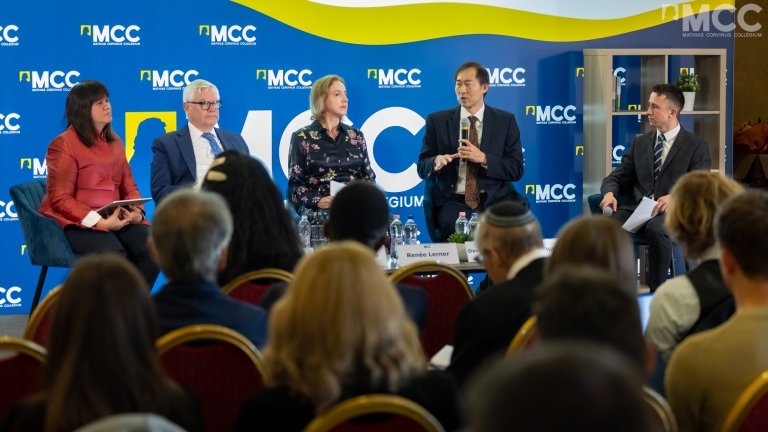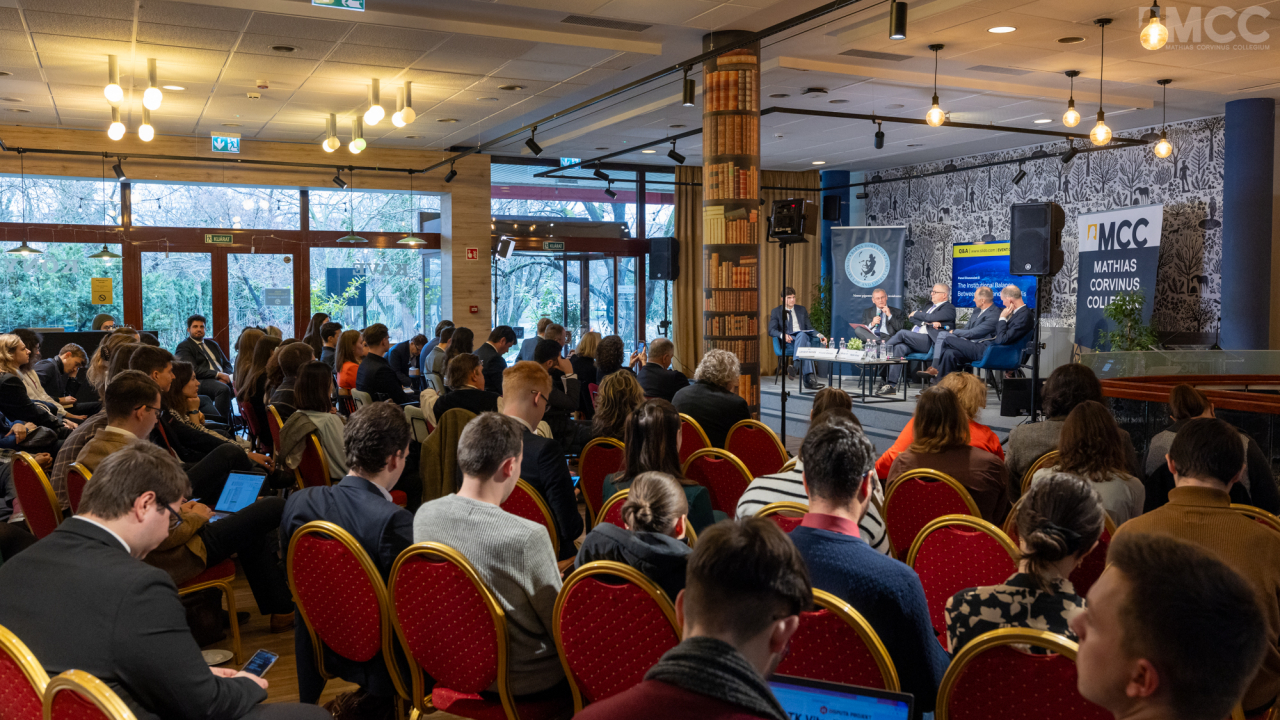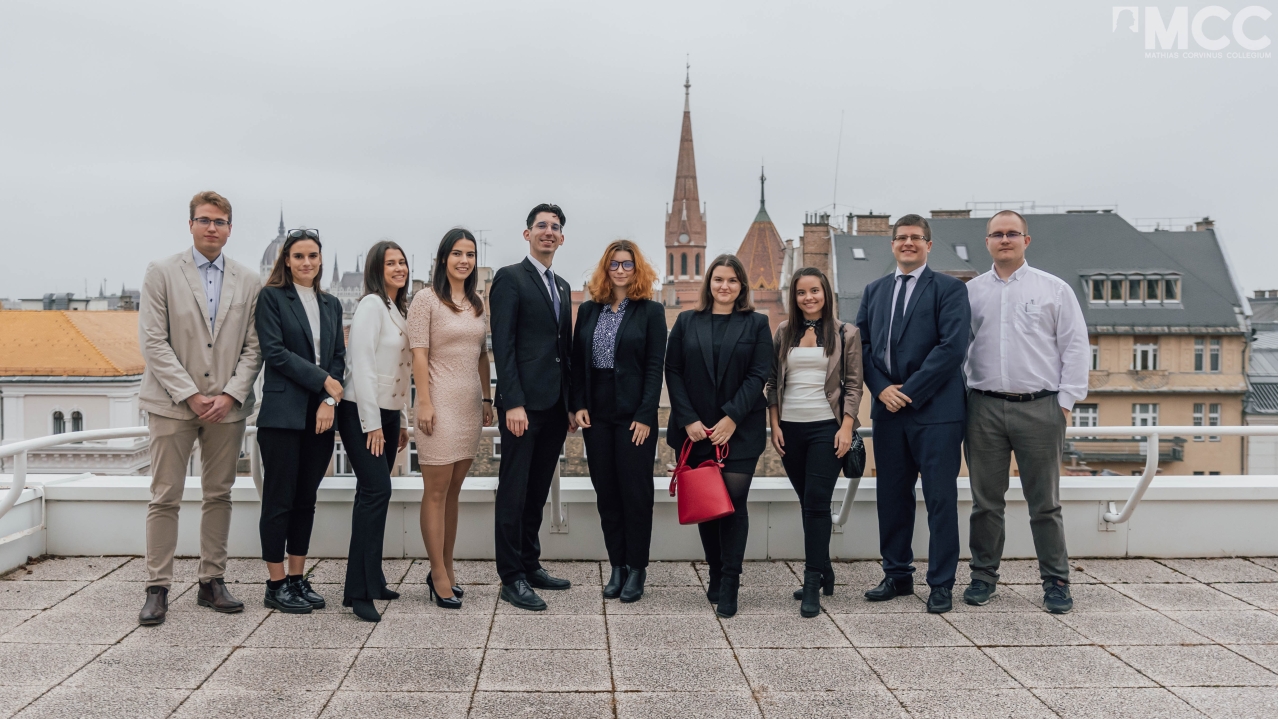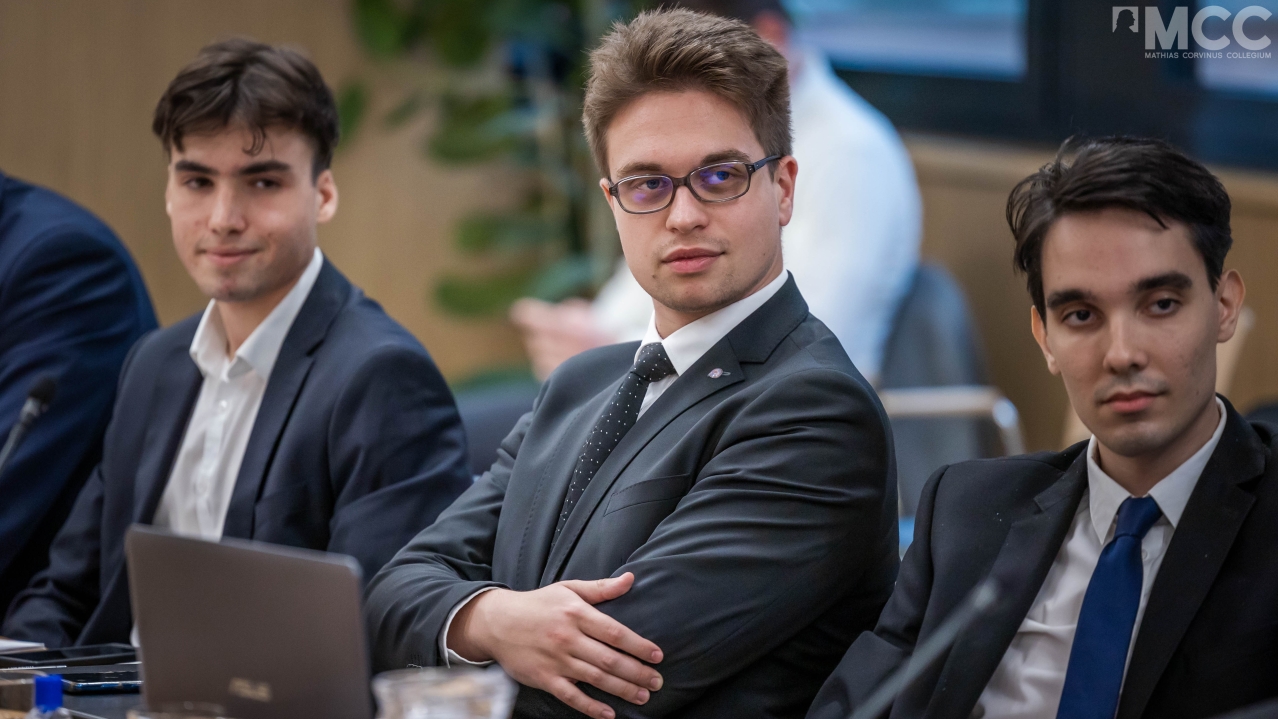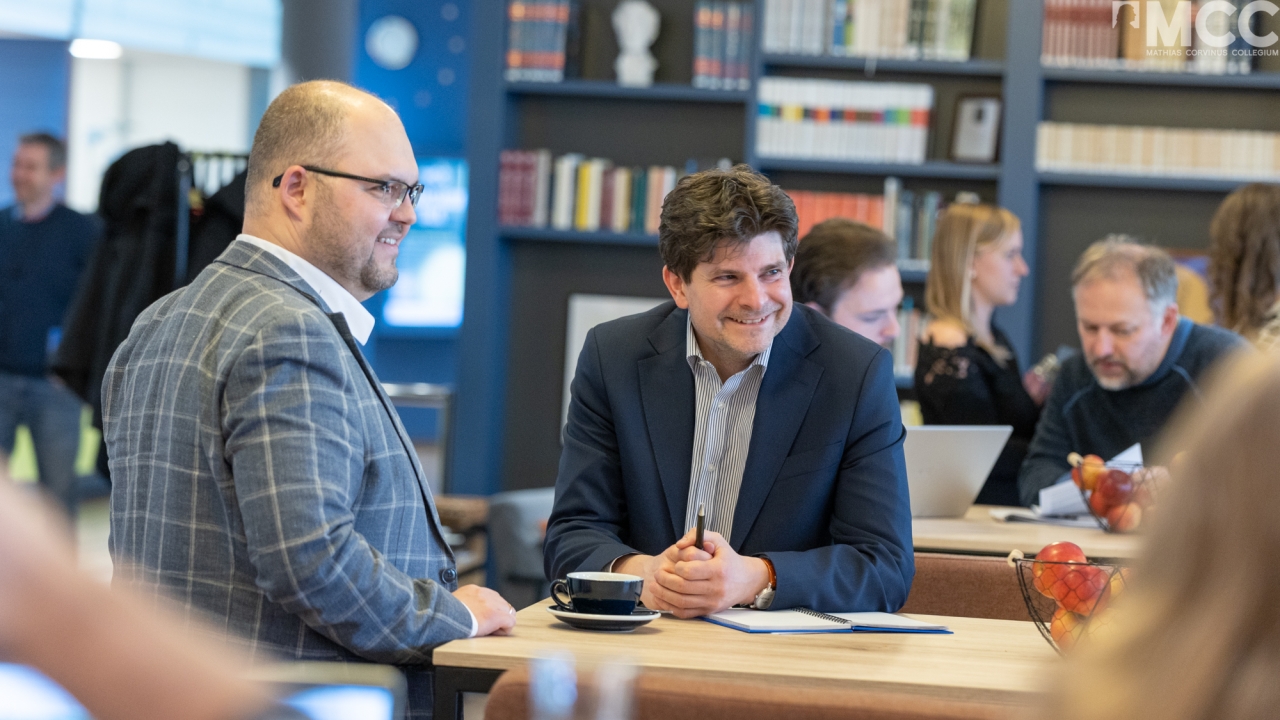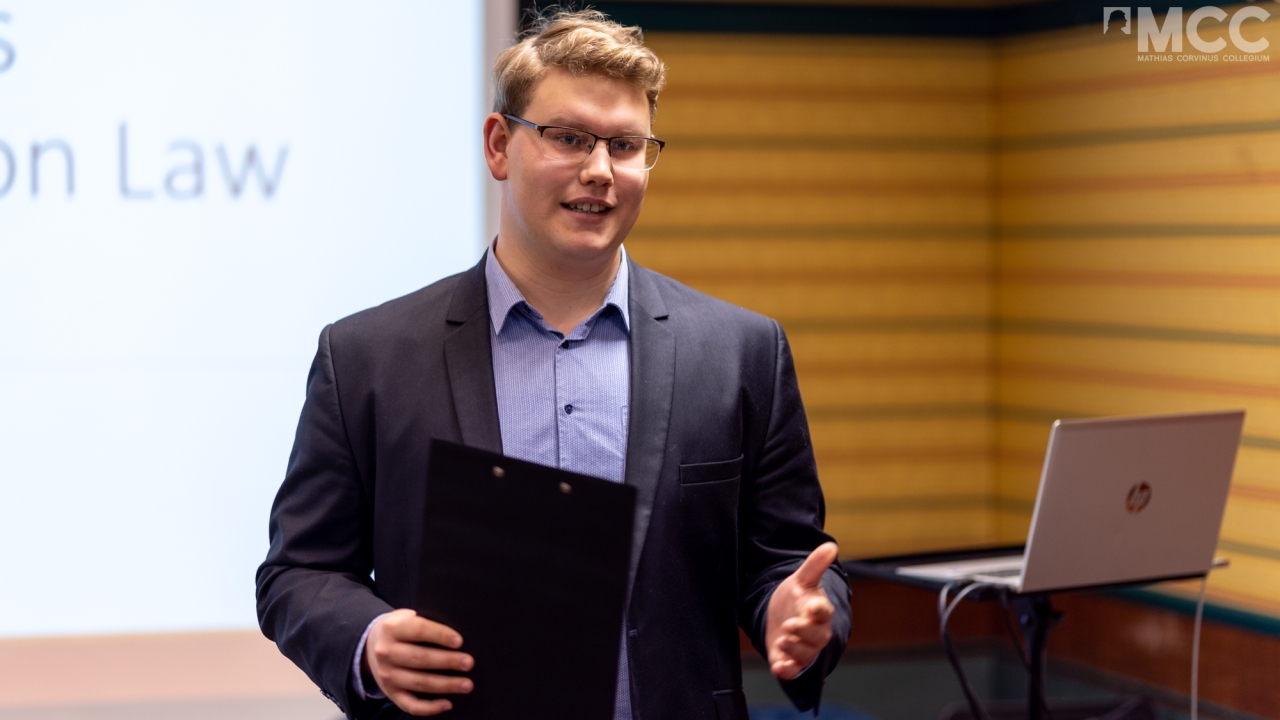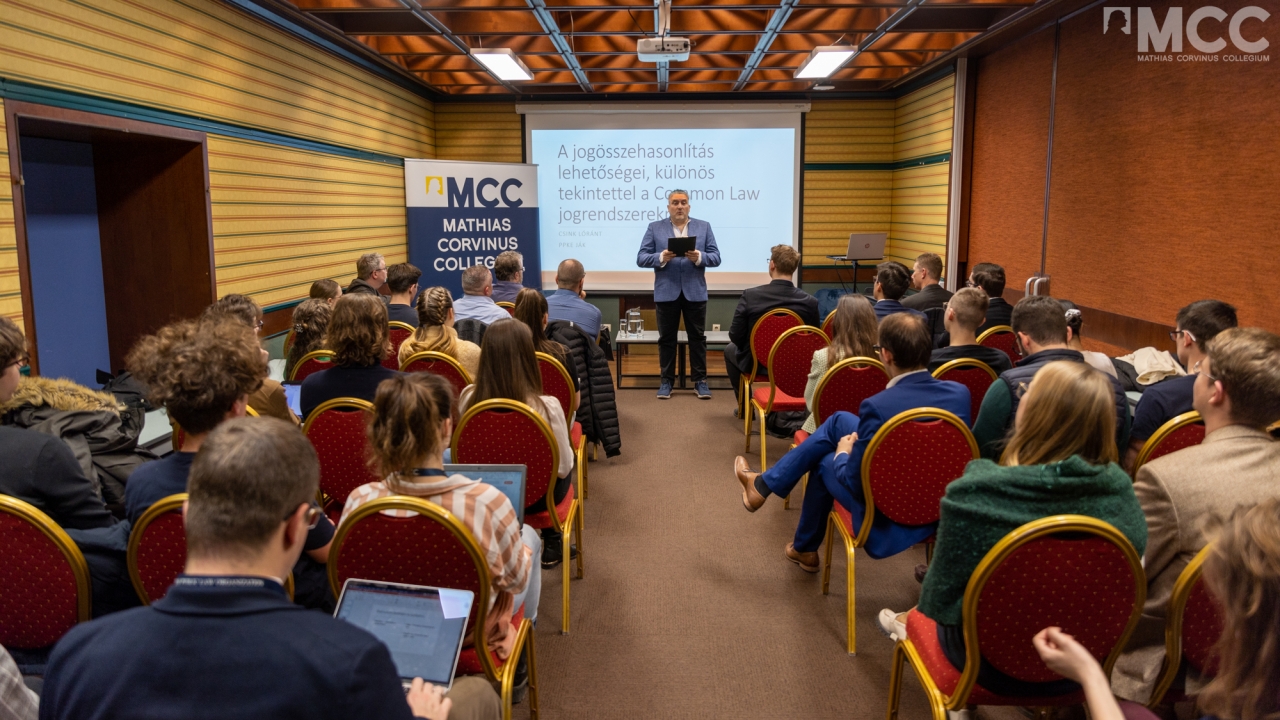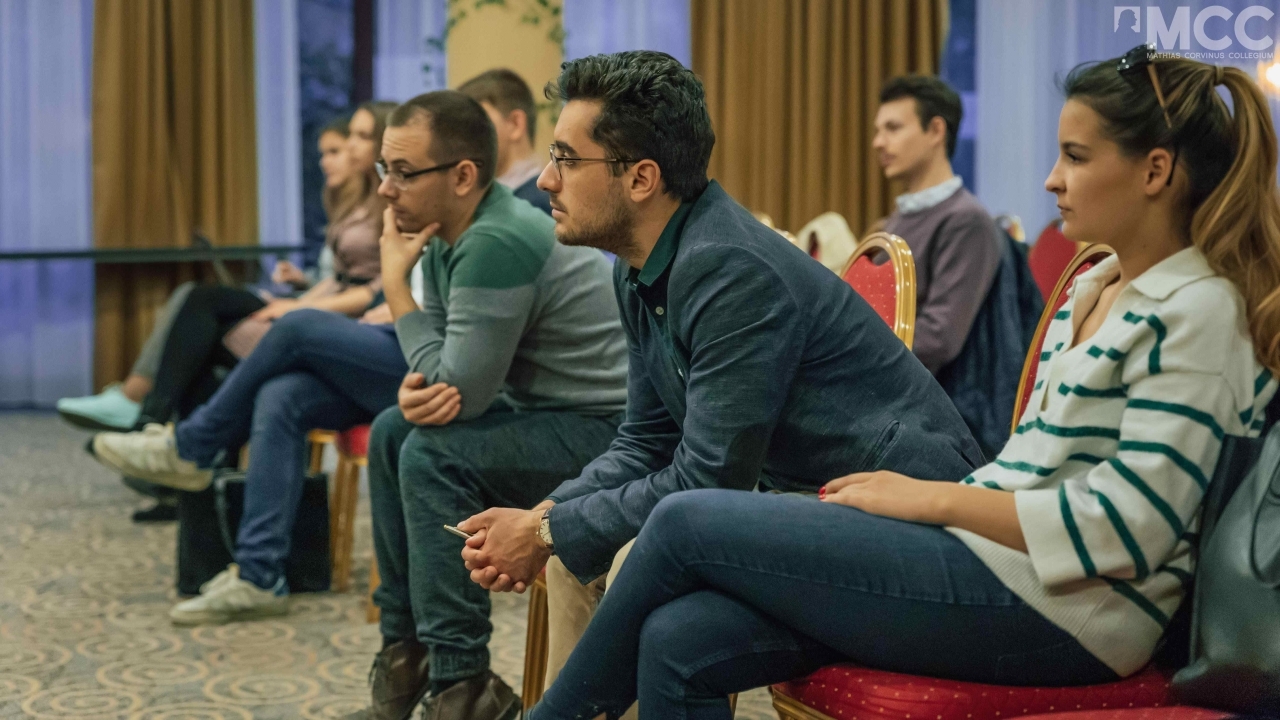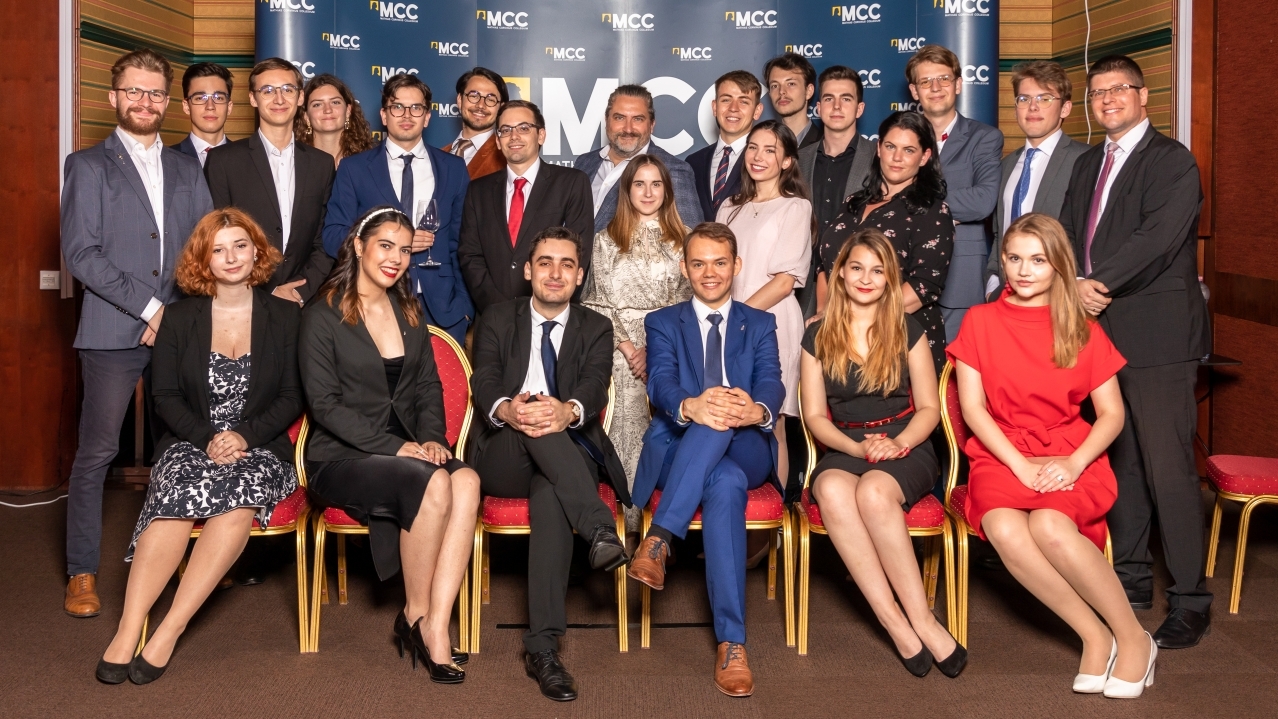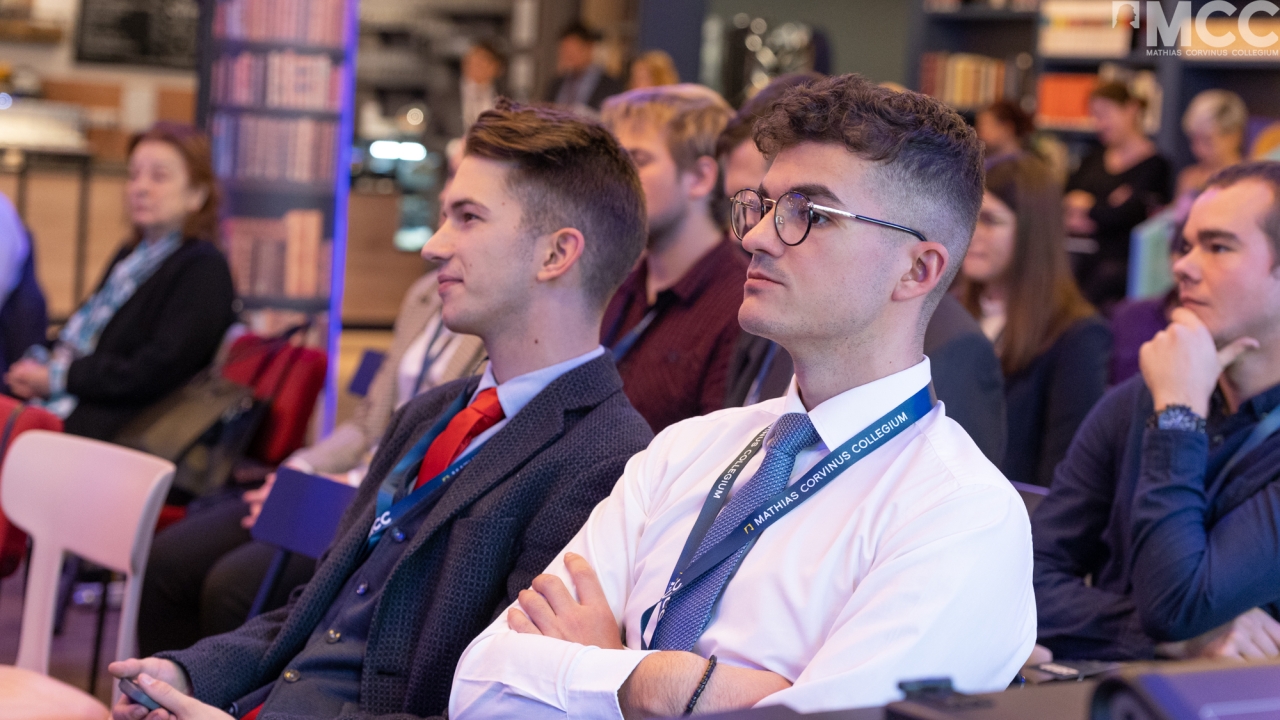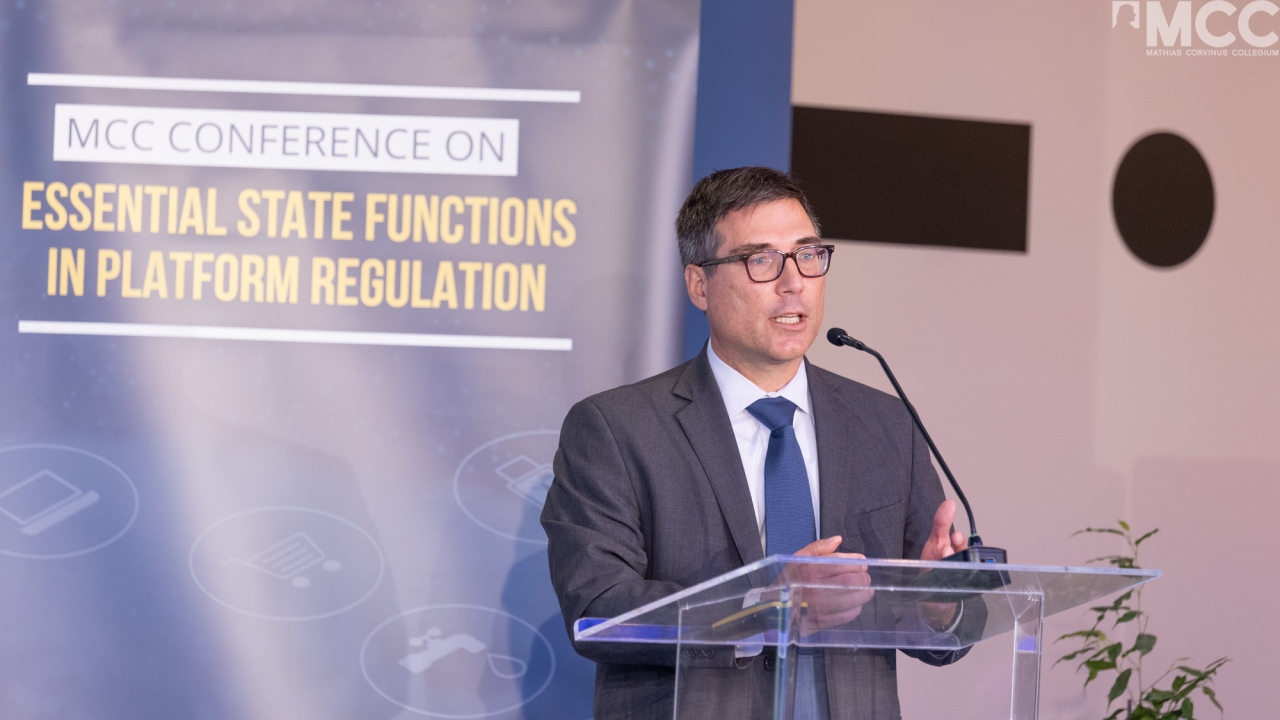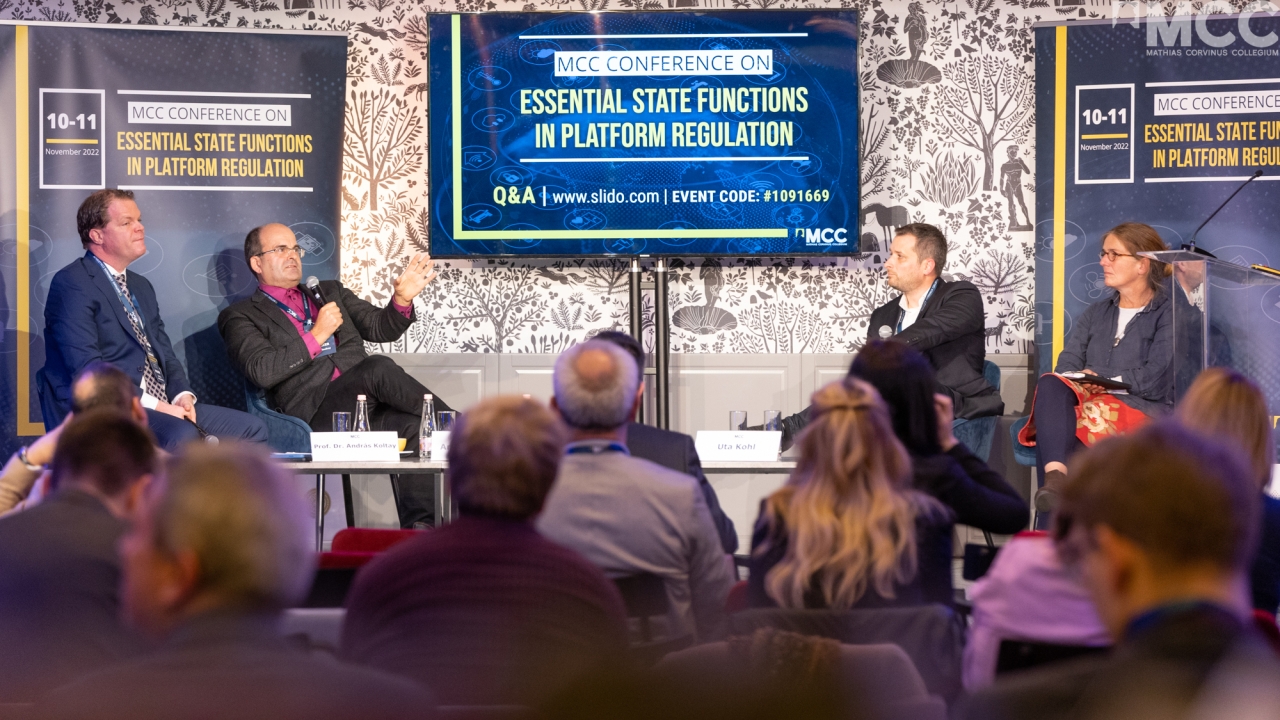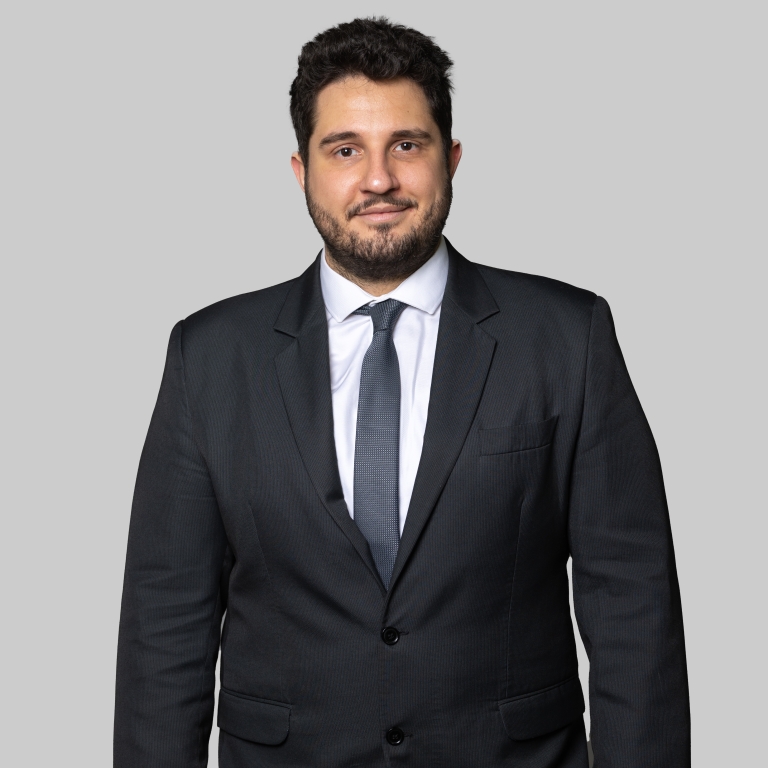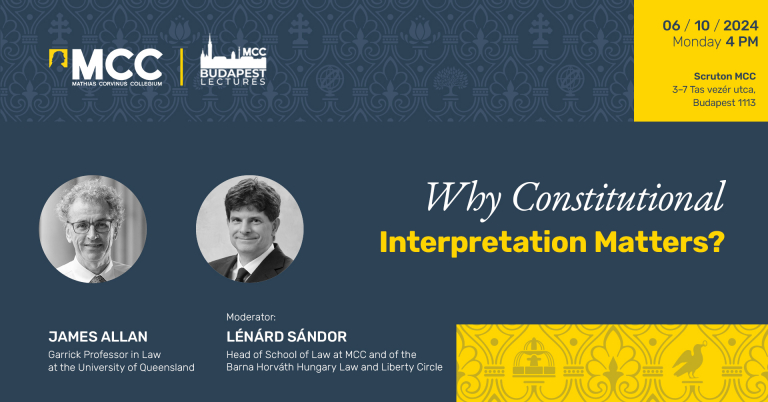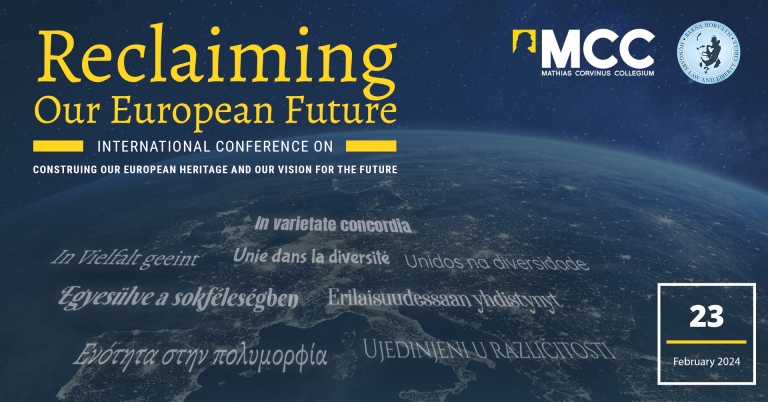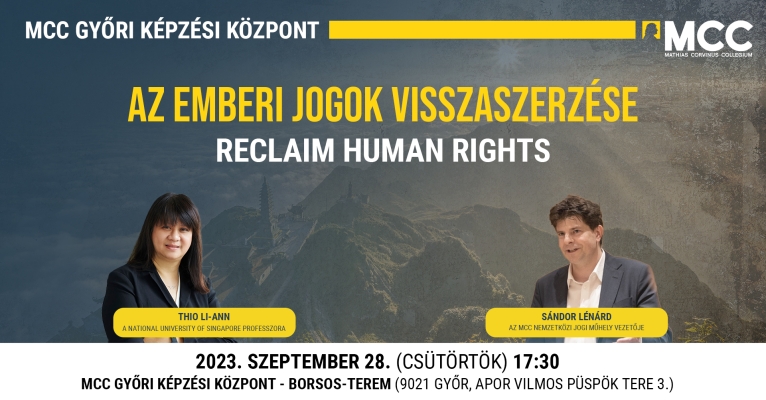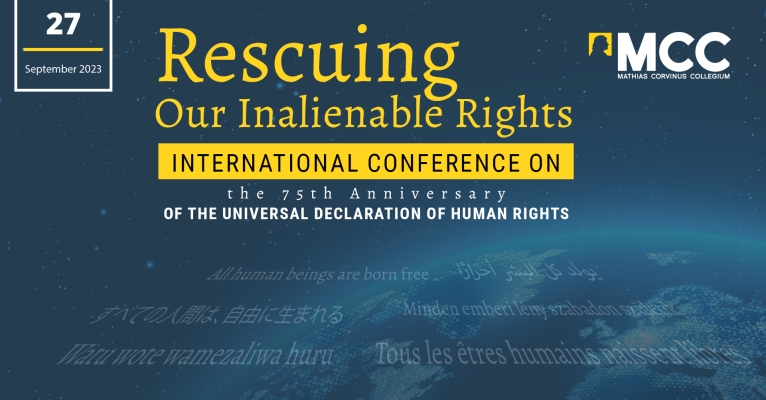The legacy of Roman law is understanding law as the " the art of goodness and equity.” Accordingly, a lawyer not only examines past and interprets the present but ultimately shapes the future through the decisions and rules they make. Being a lawyer is a vocation with unique vision and a structured way of thinking. Thus, the primary goal of the MCC School of Law is to transmit the knowledge, ethos, culture, and practice necessary to excel in this profession.
Our diverse range of courses provides knowledge and a way of thinking which cannot be obtained in a traditional university, giving our students a competitive edge on a national and international level. In doing this, we ensure our students are capable of interpreting and deciphering complex conundrums and finding innovative solutions. Furthermore, we put great emphasis on comparative analyses so our students can understand timely questions and dilemmas. Pursuant to this, we also involve renowned domestic and foreign professors and professionals in our educational and research activities, organize study trips, and attend domestic and international conferences.
A unique feature of the legal profession is that theory and practice always go hand in hand. Beyond personalized education and research, the School of Law also offers numerous study fellowships, internship opportunities, and institutional visits to prestigious domestic, European, and international organizations and judicial forums.
Apart from expanding our students’ knowledge, broadening their worldviews, and enriching their academic experiences, another important part of the school’s mission is providing a valuable professional and personal network for our students. This goal is supported by unique conferences, study trips, competitions, and many other professional and community programs. We are dedicated to creating a community that takes responsibility for and promotes the well-being of our country. We want to create such an environment that accompanies our students throughout their careers and helps them in a holistic manner.
Click here for the Hungarian version of this site:
Center for International Law
Timely Questions in International Law
An exchange of views on topical and relevant questions of international and European law that offer an opportunity to consult on research papers.The Spirit of International Law
The aim of this course is to discuss the distinctive features and dynamics of public international law, its sources, structure, fundamental principles, core values, the nature the law formation, the consequences of the expansion of its subjects along with the fragmentation of international law. The course will examine these abstract issues in the context of contemporary challenges of international politics and relations, including economic globalization.A World Made New
The course aims to commemorate the adoption of the Universal Declaration of Human Rights by exploring the adventurous history of its drafting, the late-night debates, the subsequent impacts of the adoption along with the controversies and key challenges surrounding the international human rights system the UDHR built. The course aims to analyze the dominant role of human rights in contemporary public thinking and debates as well as the wide-ranging implications of this phenomenon. It seeks to examine the role of national sovereignty and subsidiarity in the human rights system along with the current proliferation of rights’ claims.Globalization Through International Law
The course sheds light on the areas of international law that serve as pillars for the rise of economic globalization. It will cover the international legal protection of capital investment, international trade law as well as the law of international financial institutions. The course aims to explore how these areas of law operate, what their impacts on state sovereignty are and how they relate to other fields of international law. The course also aims to explore the ongoing reform efforts that aspire to offer a more harmonious and integrated vision of international economic and especially investment law that takes into account other areas and rules of international law in the context of economic globalization.Cultural Heritage in International Law
The course aims to highlight the importance of the international legal protection of culture and cultural heritage in the era of economic globalization. Therefore, the course focus on the impact of international trade and investment law on the protection of culture and explore the interactions between the two fields of international law. It introduces students into the foundations and development of the international law on culture and cultural heritage as well as into its institutions. The course aims to critically explore and assess the current reform approaches that offer a more harmonious and integrated vision that takes better account of cultural heritage in the context of the era of economic globalization.Center for Private Law
Összehasonlító szemléletmód a jogalakítás és a jogvitamegoldás területein
Tőkepiacok és értékpapírjog
Az EU jog élőben
Center for Public Law
State, main power, self-identity and integration
The state and the opinion market: The effects of social media on democracy
Gyermekvédelem az Európai Unióban és az online platformokon
Hogyan teszteljük az adatvédelem DNS-ét?
Gyermekvédelem az Európai Unióban és a platformokon a mesterséges intelligencia világában
Az állam funkciója az integrációban: alapvető vagy lényegi?
Law and Society Centre
Füstös szivarszobák: A média és a politika kapcsolata
Political and state theory of the Catholic Church in the 20th century
The aim of the course is to introduce students interested in the social sciences and philosophy to the 20th century political and political theory tradition of the Catholic Church and to provide a space for discussion of different approaches.Collision points: the interface between law, philosophy and theology
Social justice is understood in three ways in the history of thought (state theory, philosophy of law, political philosophy, social theory, social philosophy): as welfare, as freedom, and as virtue. Focusing on practical debates, we will look at these theories of justice through the lenses of law, philosophy and theology.What do we owe the Ceasar? – State theories in Christian thought
The course will explore the great traditions of Christian political thought on the state, focusing on five authors. From the early Christian period to the present day, we will explore issues that are still relevant today through the significant texts of the most prominent authors of the period.Reflections on Legal Philosophy
The aim of the course is to deepen the work of the Law and Society Centre, to get involved in research, to help school members in their choice of workshop, to discuss the scientific competition, class, specialised and workshop theses. Junior researchers and workshop members also participate in joint work, effectively helping each other to deepen their knowledge of legal theory. Participants bring their own texts or other related studies to the class, all of which are read and discussed after the student has led the session with a presentation. Fellows and guest lecturers involved in the work of the Centre will also be invited.Law and Cinema
Through the analysis of a major work of cinema, we discuss the relationship between the individual, society and law from different perspectives.Reading Great Works
The most eminent representatives of humanities, irrespective of historical period and discipline, have always devoted great attention and energy to constantly broadening their horizons, to learning about as many aspects of the world around them as possible beyond their professional interests, and to expanding their education. The aim of the course is to introduce students to the essays of Magyar and European authors, in the spirit of humanist education, in order to broaden their horizons and their general literacy, and to help them develop critical thinking.Utopias and Dystopias in Social Theory
Utopias are a great tradition in social theory, and a significant subset of these are negative utopias, or in other words dystopias, counter-utopias, sometimes called uchronias. The literary and cinematic formations of these are the subject of this course.Political Theology and Secular Religions
All the great typical concepts of state theory are secularised theological concepts. Political theology deals with issues such as sovereignty, the rule of the people, dictatorship, economics and environmentalism. Secular religions originate from the enlightenment, from the separation of Church and state, from secularisation. For long, the notion had been that rationalism leads to the slow fading and disappearance of religion. But now it seems that homo naturaliter religiosus: if one does not belong to a traditional organized religion (or a new religious movement), then one tends to fulfil one’s anthropologically funded religious needs and longings by other, pseudo-religions, by the so-called secular religions.Who is an Intellectual?
Through the reading of major texts, we will examine what it has meant in history and what it means to be an intellectual today. We will shape each other’s perspectives and make important choices, decisions. On the one hand, the subject has a historical arc: the intellectual vocation, which emerged in the Middle Ages, goes through significant turns in the modern age until it reaches the cultural struggles of the postmodern age, with the doubts and question marks of the Magyar regime change. On the other hand, the subject also draws a vocational arc by exploring related basic concepts such as general literacy, classical literacy, the role of the intellectual, the literate class, the formation of social opinion, the canon, the nation, knowledge and the university.Related news

MCC's School of Law Visits Modul University

Sovereignty in the Age of Globalization and Digitalization
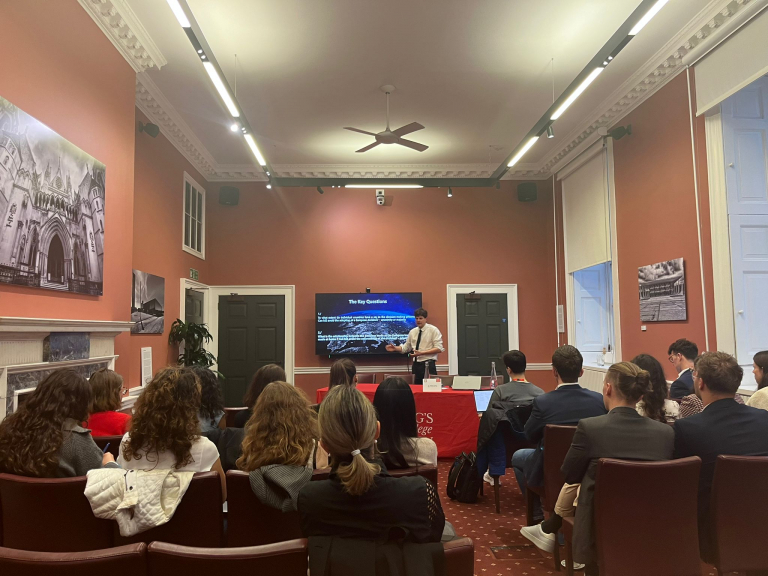
MCC-King's Summit in London: A Deep Dive into Europe’s Past and Present
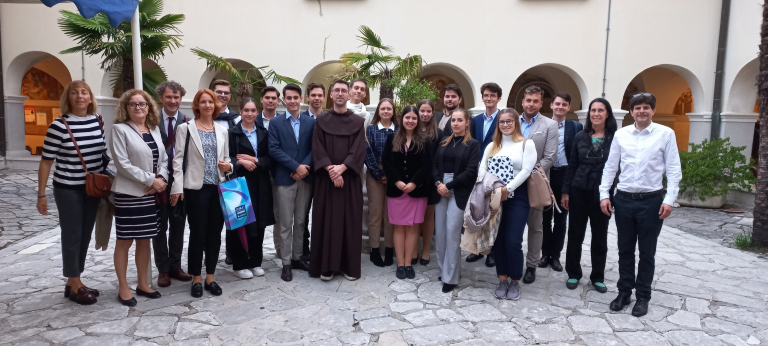
Every Generation Has a Duty to Fight for its Cultural Heritage": MCC Particpates in an International Heritage Protection Conference

Living Freedom Summer School: learn about freedom of expression, debate and learn in London!
